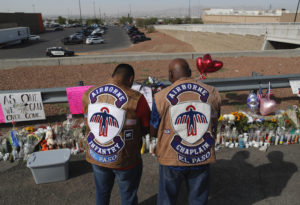Rebuilding of Iraqi Pipeline as Disaster Waiting to Happen
It's not just insurgent attacks but also incompetence and mismanagement by entities like Halliburton and the Army Corps of Engineers that are holding back the rebuilding of Iraq.It’s not just insurgent attacks but also incompetence and mismanagement by entities like Halliburton and the Army Corps of Engineers that are holding back the rebuilding of Iraq.
Your support matters…N.Y. Times:
By JAMES GLANZ
When Robert Sanders was sent by the Army to inspect the construction work an American company was doing on the banks of the Tigris River, 130 miles north of Baghdad, he expected to see workers drilling holes beneath the riverbed to restore a crucial set of large oil pipelines, which had been bombed during the invasion of Iraq.What he found instead that day in July 2004 looked like some gargantuan heart-bypass operation gone nightmarishly bad. A crew had bulldozed a 300-foot-long trench along a giant drill bit in their desperate attempt to yank it loose from the riverbed. A supervisor later told him that the project’s crews knew that drilling the holes was not possible, but that they had been instructed by the company in charge of the project to continue anyway.
A few weeks later, after the project had burned up all of the $75.7 million allocated to it, the work came to a halt.
The project, called the Fatah pipeline crossing, had been a critical element of a $2.4 billion no-bid reconstruction contract that a Halliburton subsidiary had won from the Army in 2003. The spot where about 15 pipelines crossed the Tigris had been the main link between Iraq’s rich northern oil fields and the export terminals and refineries that could generate much-needed gasoline, heating fuel and revenue for Iraqis.
Independent journalism is under threat and overshadowed by heavily funded mainstream media.
You can help level the playing field. Become a member.
Your tax-deductible contribution keeps us digging beneath the headlines to give you thought-provoking, investigative reporting and analysis that unearths what's really happening- without compromise.
Give today to support our courageous, independent journalists.






You need to be a supporter to comment.
There are currently no responses to this article.
Be the first to respond.